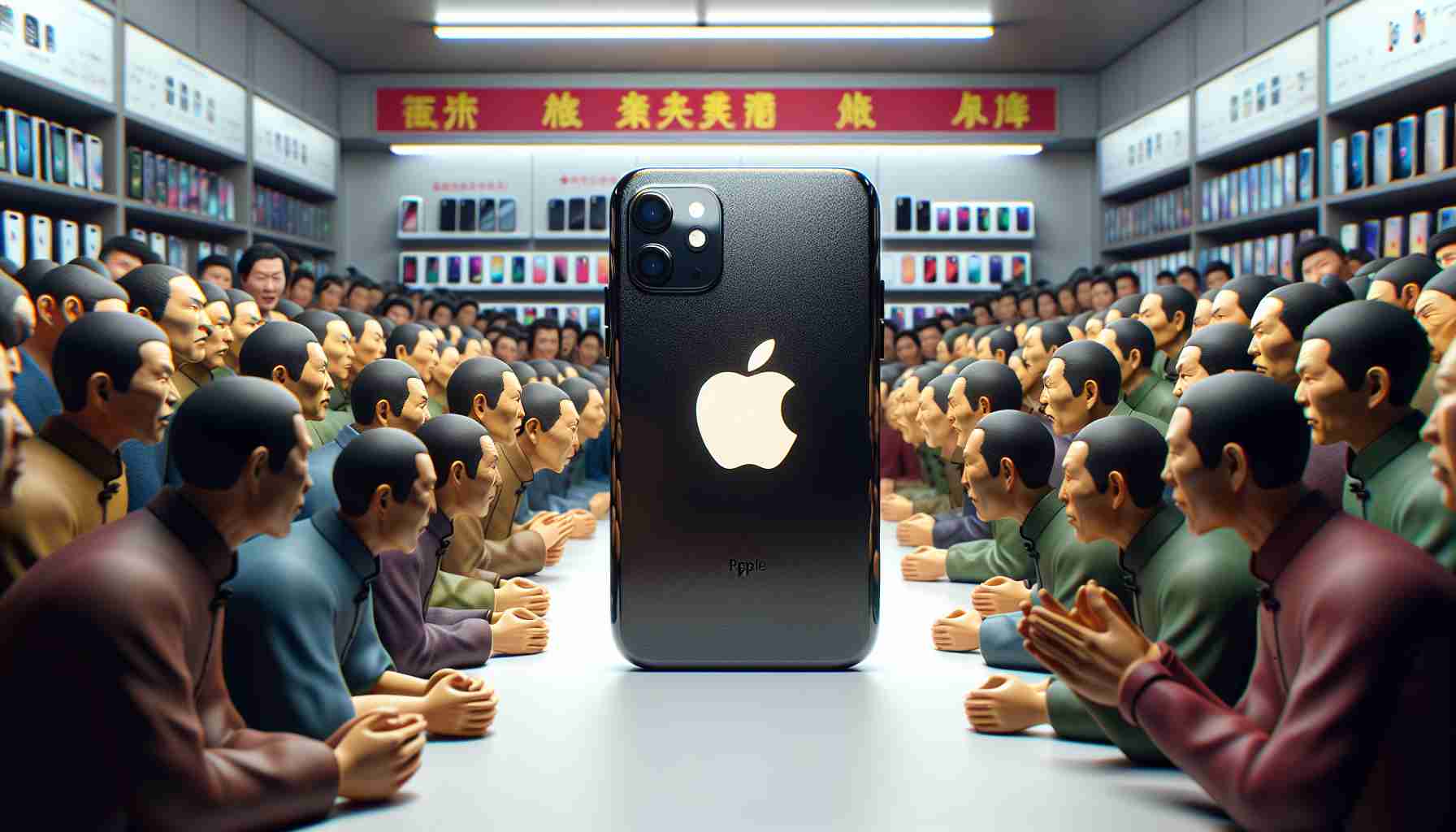Apple’s Dominance Wanes Amid Rising Competition in China
In a surprising shift within China’s smartphone arena, Apple has recently seen a notable decline in its market dominance. The tech giant’s market share plummeted from 19.7% to 15.7% within the first quarter. These developments occurred at the same time that Huawei, a key competitor, celebrated a surge in its popularity due to the release of innovative new products.
Huawei’s Ascent in the Chinese Smartphone Landscape
Huawei, despite facing commercial hurdles, has experienced a 70% leap in sales attributed to their latest product offerings. This impressive upturn has brought Huawei’s market share up to 15.5%, a substantial increase from the previous year’s 9.3%. Even as Apple slips, Huawei accelerates, putting pressure on the iconic American company.
Strategies to Reclaim Apple’s Market Share
Apple has not sat idly by in the face of these challenges; they’ve responded with various efforts including discount offers and sales incentives to win back consumer interest. Counterpoint, a market analysis firm, believes that Apple’s innovation in product aesthetics and sales tactics may offer a rebound in the upcoming quarter.
Huawei’s Resilience Amid US Tensions
Despite restrictions on its access to U.S. technology, Huawei continues to showcase resilience and growth. The company managed to introduce its high-end Pura 70 series, following the Mate 60 series, demonstrating its ability to thrive even under pressure from international sanctions. U.S. regulators acknowledge China’s advancements but maintain that their chips are still behind those from the U.S. Regardless, Huawei’s defiance and adaptability are projected to push it to the forefront of the Chinese market with an anticipated 19% share by the end of the year, overshadowing last year’s 12% share.
Key Challenges and Controversies in China’s Smartphone Market
One of the key challenges that Apple faces in China’s smartphone market is navigating the intense local competition from brands like Huawei, which have a better understanding of local consumer preferences and can offer high-quality devices at more competitive prices. There is also a growing sense of national pride among Chinese consumers, which can influence purchasing decisions towards domestic products like those from Huawei.
The controversy over the United States’ sanctions against Huawei provides both a challenge and an opportunity within the Chinese market. For Huawei, it’s a challenge because the sanctions restrict its access to critical components and software, but it also provides an opportunity to rally nationalistic support from consumers who may prefer to support a domestic brand facing international pressure.
Advantages and Disadvantages for Apple and Huawei
For Apple, an advantage lies in its established brand reputation for quality and luxury. The ecosystem of Apple’s services and products also encourages customer loyalty and repeat purchases. However, the disadvantages for Apple include higher price points and the perception of being a foreign brand, which can be less appealing in a market fostering domestic brands.
Huawei’s advantages include the agility to tailor products to local tastes and a positive perception as a national champion in technology, particularly amid U.S. tensions. However, the disadvantage lies in the difficulties posed by U.S. sanctions, potentially limiting access to cutting-edge technology and affecting the brand’s ability to compete on a global scale.
Related Links
For further information about Apple, you can visit their website at Apple.
For further information about Huawei, you can visit their website at Huawei.
These links lead to the main domains of the respective companies, where one can find extensive information about their latest products, news, and the challenges they face within the global market.
The source of the article is from the blog newyorkpostgazette.com
